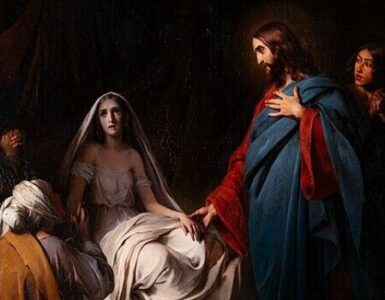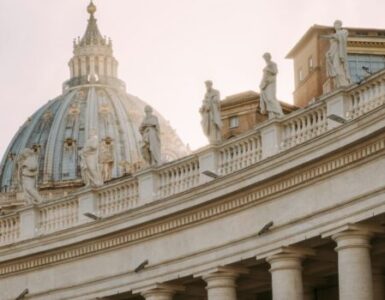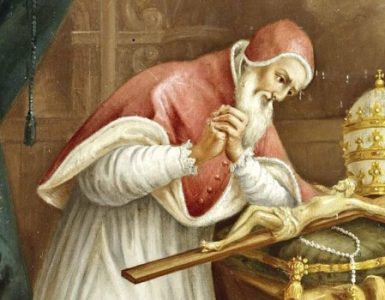For 7 years, I have lived with a chronic medical condition called bile reflux disease. My gall bladder stopped working, and I had it removed in 2017. Unlike many people who have their gall bladder removed, my issues worsened rather than getting better. The medications I take aren’t working very well, and I haven’t always been strict enough with my diet, although diet doesn’t seem to fix it either. This has caused chronic, debilitatingly, painful gastritis, esophagitis, and a severe motility disorder.
The bile is destroying the tissue of my esophagus, and I now have a pre-cancerous condition known as Barrett’s. For someone with bile reflux—not acid reflux—and a severe motility disorder, I am at high risk for esophageal cancer—an extremely deadly form of cancer and a horrific way to die. My priest-cousin watched two priests he knew die from it within a few short months of each other and described some of their last days to me a few years ago.
I live with this hanging over me. I do not know if the severe pain I am in is a sign that my illness has progressed to cancer because esophageal cancer is a silent killer. Every year I go in for an endoscopy so the doctor can monitor me and try to catch it as quickly as possible should cancer develop. This year the Lord led me to confront the very real terror I carry every year before this test.
Last week, before my endoscopy, I became paralyzed by fear, frustration, anger, and a desire to flee into worldly pleasures to avoid my suffering. I watched television to keep my mind preoccupied. I pushed the Lord away, and the deep-seated fears from years of repeated suffering came roaring to the surface. All of this was building up to encountering the Lord in a deeper way.
During Holy Week each year, we witness the weaknesses of various people throughout Our Lord’s Passion. These narratives we relive every year should not be distant texts far removed from our own experiences. Instead, they are an invitation to see our own weaknesses. As one example, it is easy to judge the weakness of St. Peter in his arrogance at the Last Supper when he claims he will never deny the Lord. Every single one of us says this until some major tragedy strikes. St. Peter fails in Our Lord’s greatest hour of need, and if we are humble enough to acknowledge it, so do we when suffering or challenges arise.
I felt like St. Peter during the Passion leading up to my endoscopy. I ran away—but still stayed within view of the Lord—to warm myself by the charcoal fire. I didn’t want to be out in the cold in my fear and in the face of my own crucifixion. I didn’t want to surrender all of my terror to Him. I realized all of this when I did finally bring it back to Him at Adoration, Confession, Mass, and Anointing of the Sick the night before my procedure.
The Lord led me to confront the painful reality that I am not spiritually prepared for the terror of esophageal cancer or any other death like it. As a 9-11 relief worker, I was willing to run into difficult situations—ministering after a terrorist attack—but only when it is to help others, not when I am the victim. I will fight for others, much like St. Peter, but there are limitations in my willingness to follow the Lord when it comes to my own personal suffering. There are weaknesses within me that still lead me to deny the Lord three—and more—times.
As I brought this to the Lord in prayer through meditating on John 21, which is St. Peter’s encounter with the Lord by the Sea of Tiberias, I realized that the Lord knows my weaknesses and still loves me despite them. It is in this weakness that the Lord can do His greatest work of teaching me humility and how to grow in charity. Through charity, I will be able to face whatever may come in the future since “perfect love casts out all fear” (1 John 4:18).
In looking at John 21:15-19, we see in a deep way how the Lord loves us where we are in each moment. Look at the exchange between Our Lord and St. Peter:
First, reading this passage in English is to lose some of the meaning in the conversation. We do not differentiate forms of love in English the same way Greek does, so we may read this thinking that Our Lord and St. Peter are speaking of love at the same level, but they are not. Our Lord is using the term agape in the original Greek. This is unconditional, divine love. The highest love that God invites us to.
St. Peter responds with philia, which is the fraternal love of friends, which is good, but a lower form of love than what Christ is asking of Him, and ultimately, each one of us. The Lord does not upbraid St. Peter in this encounter, rather, He is trying to heal St. Peter of his threefold denial. It is clear that St. Peter loves Jesus, but that he is not yet at the level of agape that he is being invited into. At the third question of St. Peter’s love, Jesus drops to philia in order to reach St. Peter where he is currently in his journey with the Lord. This is what He does for all of us who come back to Him after abandoning Him during trials and testing.
Ultimately, the Lord sees the entirety of our lives. He knows the outcome already. He tells St. Peter that He will eventually surrender to martyrdom, and he will come to love the Lord with agape in time. The same is true in my life and in yours. The Lord knows that I am weak and that I flee in the face of the possibility my chronic illness will become cancerous. Thankfully, there were no signs of cancer in this year’s endoscopy. Each year, when it is time for my endoscopy, the Lord will strengthen me through His Sacraments, prayer, and the people around me as I am confronted with this reality anew.
I can go forward with greater hope and peace because the Lord is meeting me where I am right now, and He sees ultimately where I will end up and the holiness He is leading me towards. He knows that in many ways I still—despite my St.-Peter-at-the-Last-Supper-like protestations—love the Lord sincerely with philia, but I know this is not where the Lord wants to lead me. In His time, He wants me to attain agape and live only for Him, even in the face of tremendous suffering and death. In fact, it is in suffering that we often grow in agape.
When we come face-to-face with our weaknesses, and we see how we do not love the Lord as much as we are called to, great moments of grace are being offered to us. Weakness is power in the Kingdom of God. It is a great lie of our culture that strength, control, and the nihilistic will to have power lead to freedom. The Lord is waiting for each one of us to bring our weaknesses to Him so He can heal and strengthen us.
He knows that we lack the strength to endure many of the torments of this life. He knows how terrible sufferings can drive us to flee from Him. He knows that most of us have not given our whole hearts to Him, but He also knows the end of each of our stories. He knows that through His continual graces each one of us will one day be able to love Him with agape and to follow Him, even to the point of death.
Image: Rembrandt. (1660). Peter Denying Christ [painting]. Retrieved from Wikimedia Commons: https://commons.wikimedia.org/w/index.php?search=peter+denies+christ&title=Special:MediaSearch&go=Go&type=image.










